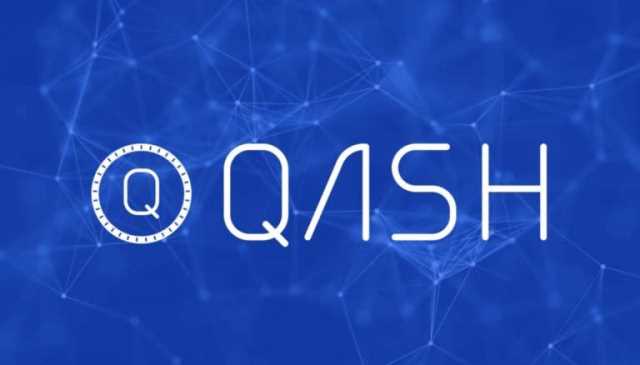Bitcoin Mining: What Is It & How Does It Work? Forbes Advisor INDIA

Furthermore, every mining operation would also require a proper ventilation system for keeping the equipment cool and a rack for placing the mining nodes. The current Bitcoin block reward is 6.25 BTC, with the next Bitcoin halving scheduled for April 2024. This happens every 210,000 blocks added, which takes about four years. Many companies spend thousands and even millions of dollars to set up a large Bitcoin mining operation, but is it worth it? It just might be, based on the growth of mining companies over the last two years. Companies like Core Scientific saw their Q2 revenue rise by over 100% in 2022.

Mining Difficulty
Mining Bitcoin isn’t like digging for gold or coal deep underground. Miners are those individuals or companies that sustain and audit the blockchain network that supports the cryptocurrency. Even people with an ASIC mining machine at home tend to pool their computing power with other ASIC owners and share the Bitcoin reward based on their contribution to the pool. While you can successfully mine a block solo, that feat is often compared to winning the lottery. High costs put home miners at a disadvantage to institutional miners, who can source low-cost power and save money with bulk purchases of Bitcoin mining rigs. Bitcoin mining requires the mining program to generate a hash and append another number to it called the nonce, or “number used once.” When a miner begins, it always starts this number at zero.

Choosing the Right Mining Software
Bitcoin miners currently generate a carbon footprint equivalent to that of Bangladesh. With cryptocurrency, there is a risk that someone with Bitcoin could make a copy of that Bitcoin and send that to a merchant instead of the real thing. “The input that determines whether such activities are profitable is the cost of electricity to power the mining computers,” says David Weisberger, CEO of trading platform CoinRoutes. The main issue at the heart of the Bitcoin protocol is scaling—the blockchain’s ability to handle more work efficiently. Though Bitcoin miners generally agree that something must be done to address scaling, there is less consensus about how to do it.
How to evaluate a cryptocurrency
Mining has become a multibillion-dollar industry, and the miners with the best shot at rewards are now those with warehouses full of ASICs. If you’re just buying or trading Bitcoin, you might not have thought much about how mining actually works. But because Bitcoin is maintained by its users, it’s helpful for anyone involved with Bitcoin to have a basic understanding of its technological underpinnings. Bitcoin mining is a process that creates new Bitcoins and releases them into circulation. We’ve screened through the leading exchange offerings, and tons of data, to determine the best crypto exchanges and top cryptocurrency brokers.
Proof of Work Versus Proof of Stake
- You should not construe any such information or other material as legal, tax, investment, financial, or other advice.
- Miners on the network would search through all the stored data and choose the one with the most fees.
- How much a miner earns depends on the cryptocurrency they are mining and what proof method they are using.
- The ledger also shows when a coin changed hands, and who was involved in the transaction, putting the lie to the claim that Bitcoin is anonymous.
- Investing heavily in mining infrastructure doesn’t guarantee returns.
- As of Aug. 31, 2024, the RTX 4090 is the top-of-the-line consumer graphics card.
- Their job is to route out bad actors while verifying transactions through consensus.
It also requires huge investments in expensive equipment which is tagged along with high computational power as well as reliable internet and electricity. So, it is always advisable to test the waters before jumping in with your hard-earned money. Mining Bitcoins in a pool with combined computation power also promotes efficient mining with reduced mining difficulty to solve a block. This also promotes the participation of small miners to have a chance of earning Bitcoin, even though they will only receive a certain part of the reward.
What Are Coin Mining Pools?
Since that’s a lot of money, it allows miners to invest into their crypto mining rig and software, while still remaining profitable. In its essence, crypto mining is the process that is used to create new digital coins, verify new transactions, and add them to the blockchain ledger. Many cryptos, and most importantly – Bitcoin, rely on crypto mining, because it’s thanks to mining that these currencies enter circulation in the shape of new, freshly-mined coins. This is a latest way of mining Bitcoins, where the miner can buy a cloud mining service or purchase a contract from a cloud mining provider who is specialized in cryptocurrency mining rigs. This facilitates the miner to mine Bitcoins without bearing the sunk costs and maintenance requirements of mining hardware set up.

Why does Bitcoin need miners?
This massive computational effort consumes a significant amount of electricity, which has raised concerns about the environmental impact of Bitcoin mining. However, miners often seek out locations with cheap and abundant electricity to maximise their profitability, sometimes using renewable energy sources to offset environmental concerns. How does crypto mining work Notably, Ethereum, the second-most valuable cryptocurrency, recently completed the process of converting to proof of stake. Unless you have a cheap source of electricity, it’s possible that your mining costs will exceed whatever you make in rewards. Here’s a Bitcoin mining example that might be relevant to an everyday U.S. household.
There has been some critique over decentralized cryptos, namely altcoins, such as coins operated through the ethereum blockchain network. Stakers holding more tokens may have an advantage in the network over those with fewer. Instead of miners, proof of stake cryptocurrencies have validators. These validators stake their cryptocurrency on betting which blocks will be added next to a chain. If successful, the validators get a block reward in proportion to what they have staked.



Leave a Reply